Key Information
CPD Hours: 42 hours
Course Format: Lectures, virtual reality laparoscopic simulator training and cadaver practical sessions
Enrol Now
Alternatively you can download and email using our Registration Form
Course Information
- Practical hands-on experience of laparoscopic surgeries including neutering, gastropexy, liver biopsy, exploratory laparoscopy and minimally invasive cystotomy.
- Structured training of the skills required for laparoscopy using training boxes, computer simulators and cadavers.
- Indications, diagnostic work up and anaesthesia for common conditions treated with laparoscopy.
- Key information for the set-up of laparoscopy in a veterinary clinic, including kit requirements.
This comprehensive 3-stage training programme is designed to equip small animal vets with the knowledge and practical skills to confidently perform laparoscopic procedures.
Stage 1: An introduction to laparoscopy in veterinary practice
Friday 24th April at the Royal Free Medical Simulation Centre, London
A morning of lectures includes review of the benefits and indications for laparoscopy in small animals, access to the abdomen and laparoscopic equipment. Practical sessions in the afternoon build laparoscopic skills using laparoscopic training boxes and computer simulators.
Stage 2: Laparoscopic computer simulator training programme
Various dates (of your choice) between Monday 27th April to Friday 3rd July at the Royal Free Medical Simulation Centre, London
Open access laparoscopic computer simulator training - This training programme uses virtual reality laparoscopic computer simulators to develop the surgical skills unique to laparoscopy. Delegates complete multiple short (45 minute) practice sessions over a two-month period, as repeated practice enhances both skill acquisition and retention. A 45-minute induction introduces delegates to the programme. The programme includes 3 blocks of 5 practice sessions. At the end of each practice block there is a formative feedback session.
Previous delegates have strongly agreed that stage 2 was beneficial to performance of laparoscopic procedures in animals. One delegate said that “The use of (laparoscopic) instruments (became) instinctive, allowing me to concentrate on the portals and (surgical) procedures.”
Access: 24/7 access to simulators; flexible scheduling arranged with the course director.
Stage 3: Laparoscopic surgical procedures in dogs and cats
Thursday 16th and Friday 17th July at the RVC's Hawkshead Campus, Hertfordshire
One-day of lectures provides a practical guide to the laparoscopic procedures performed in small animal practice, alongside tips for anaesthesia and peri-operative care. Day two allows delegates to perform laparoscopic surgeries on cadavers, including neutering, gastropexy, liver biopsy, minimally invasive cystotomy, exploratory laparoscopy and splenectomy.
Why do this course?
This course is designed to launch your laparoscopic surgery journey. It is ideal for small animal vets keen to offer a laparoscopic neutering service; vets enthusiastic to expand their surgical skills in new directions; and vets studying for advanced qualifications in small animal surgery including the RCVS Certificate in Advance Veterinary Practice and the ECVS Diploma.
Further information for Stage 2, Open access computer simulator training at the Royal Free Medical Simulation Centre, London
Stage two is fundamental to this course, so please consider your access to the Royal Free London NHS Foundation Trust Hospital. After the induction session, delegates will be granted 24-hour, 7-days a week access to the Simulation Centre to complete practice sessions in their own time. Each practice should last a maximum of 1 hour. Ideally, no more than 2 practice sessions should be completed in one day and there should be at least 1 hour between practice sessions. Induction and formative feedback sessions are arranged directly with the course director, who is able to adjust the programme schedule to accommodate individual work/life commitments.
To gain security access to the Simulation Centre all delegates will need to provide a CV and two references.
All prospective applicants should contact cpd@rvc.ac.uk. Karla Lee is available to speak with anyone interested in learning more about this course and how stage 2 could be adapted to individual commitments.
Rosanne Jepson, BVSc MVetMed PhD DipACVIM DipECVIM-CA FHEA MRCVS
Professor of Small Animal Internal Medicine
The Royal Veterinary College
Carolina Palacios Jimenez, DVM CertVA PGCertVetEd PhD DipECVAA MRCVS
Senior Lecturer in Veterinary Anaesthesia and Analgesia
The Royal Veterinary College
Karla Lee, MA VetMB PhD CertSAS DipECVS PGCAP FHEA MRCVS
Professor of Small Animal Soft Tissue Surgery
Royal Veterinary College
Matteo Rossanese, DVM SPSA MSc DipECVS CertAVP PGCertVetEd FHEA MRCVS
Senior Lecturer in Small Animal Surgery
The Royal Veterinary College
Proudly supported by:

Relevant CPD courses you may find of interest
Abdominal surgery – the essentials
Webinar Plus: Soft tissue surgical principles
Webinar Plus: Advanced wound reconstructive surgery
Practical skin reconstructive techniques and wound management
The trauma patient – a global approach to case management
Webinar Plus: Diagnostic modalities for GI, liver and pancreatic disease
Webinar Plus: Clinical governance - quality improvement and fostering a supportive practice culture
Webinar Plus: Anthrozoology for veterinary professionals
Webinar Plus: Journal club - basic statistics for busy clinicians

